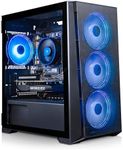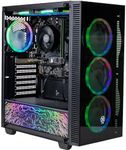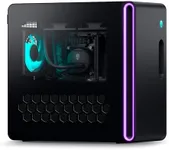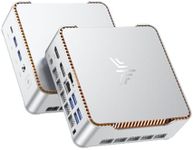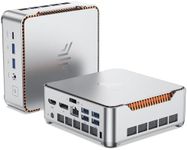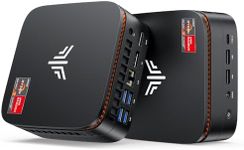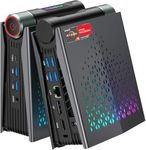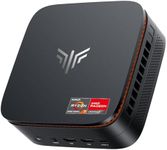Buying Guide for the Best Gaming Desktops
When choosing a gaming desktop, it's important to consider the components that will affect your gaming experience. A gaming desktop is a powerful machine designed to handle the demands of modern games, which often require high processing power, advanced graphics, and ample storage. Your choice should be guided by the types of games you play, your performance expectations, and any additional tasks you might want to perform on the desktop, such as streaming or content creation.Processor (CPU)The CPU, or central processing unit, is the brain of your gaming desktop. It handles all the instructions from your games and other applications. A more powerful CPU can improve game performance, especially in CPU-intensive games. CPUs are often categorized by their core count and clock speed. For gaming, a CPU with at least 4 cores and a high clock speed (measured in GHz) is recommended. If you plan to multitask or stream while gaming, consider a CPU with more cores, such as 6 or 8.
Graphics Card (GPU)The GPU, or graphics processing unit, is crucial for rendering the images and graphics in your games. A powerful GPU can significantly enhance your gaming experience by providing smoother frame rates and better visual quality. GPUs are often ranked by their model number and VRAM (video RAM) capacity. For casual gaming, a mid-range GPU with 4-6GB of VRAM may suffice. For high-end gaming or VR, look for a high-performance GPU with 8GB or more of VRAM.
RAMRAM, or random access memory, is where your computer stores data that is actively being used or processed. More RAM allows your computer to handle more tasks simultaneously and can improve game performance. For gaming, 8GB of RAM is generally the minimum, but 16GB is recommended for a smoother experience, especially if you plan to run other applications while gaming. If you are into heavy multitasking or content creation, consider 32GB.
StorageStorage determines how much data your computer can hold. There are two main types: HDD (hard disk drive) and SSD (solid-state drive). SSDs are faster and can significantly reduce game load times, while HDDs offer more storage for a lower price. For gaming, a combination of both is ideal: an SSD for your operating system and frequently played games, and an HDD for additional storage. Aim for at least 256GB SSD and 1TB HDD.
Cooling SystemA cooling system is essential to prevent your gaming desktop from overheating, which can affect performance and longevity. There are air and liquid cooling systems. Air cooling is generally sufficient for most users, but if you plan to overclock your CPU or GPU, or if you have a high-performance setup, liquid cooling might be necessary. Consider your gaming environment and how much heat your system will generate when choosing a cooling solution.
Power Supply Unit (PSU)The PSU provides power to all the components in your gaming desktop. It's important to have a PSU that can supply enough power for your system, especially if you have a high-end GPU or plan to upgrade components in the future. PSUs are rated by wattage. For most gaming desktops, a PSU with 500-750 watts is sufficient. Ensure it has a good efficiency rating (80 Plus Bronze or higher) for better energy use.
MotherboardThe motherboard is the main circuit board that connects all the components of your gaming desktop. It determines the compatibility of your CPU, RAM, and other components. When choosing a motherboard, consider the socket type for your CPU, the number of RAM slots, and the expansion slots for future upgrades. Ensure it has the necessary ports and connectivity options for your peripherals and network needs.





